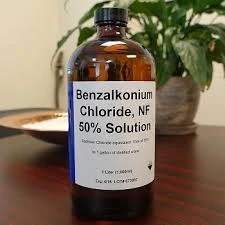pbtc scale inhibitorpbtc
The Role of PBTC in Scale Inhibition A Comprehensive Overview
The issue of scale formation in various industrial processes is a significant challenge that can impact operational efficiency, increase maintenance costs, and lead to equipment failure. Among the numerous scale inhibitors available, PBTC (phosphonobutane-1,2,3-tricarboxylic acid) has emerged as a critical component in the management of scaling in water systems, especially in cooling water, boilers, and oilfield applications. This article delves into the properties, mechanisms, and advantages of using PBTC as a scale inhibitor.
What is PBTC?
PBTC is a type of organic phosphonate that belongs to a broader category of chemical compounds known for their chelating and scale-inhibiting properties. Its molecular structure allows it to effectively interact with various metal ions, which are often responsible for scale formation in water systems. Given its multi-functional nature, PBTC serves not only as a scale inhibitor but also as a corrosion inhibitor and a dispersing agent, making it a versatile choice for industries requiring efficient water treatment solutions.
Mechanism of Action
The effectiveness of PBTC in scale inhibition can be attributed to several mechanisms
1. Chelation PBTC readily binds with metal ions such as calcium, magnesium, and barium. By forming stable complexes with these ions, PBTC reduces their availability to precipitate and form insoluble scales.
2. Crystal Modification PBTC interferes with the crystallization process of scale-forming salts, such as calcium carbonate and calcium sulfate. By modifying the growth of these crystals, PBTC can prevent them from adhering to surfaces within equipment, thus minimizing scale deposits.
3. Dispersion PBTC also acts as a dispersant, keeping existing scale particles suspended in the water. This property helps in the removal of scales through water flow, reducing the chances of accumulation on surfaces.
Advantages of PBTC as a Scale Inhibitor
pbtc scale inhibitorpbtc

1. High Effectiveness Research has demonstrated that PBTC exhibits a high level of effectiveness in inhibiting scale formation, often outperforming traditional scale inhibitors. Its ability to target a wide range of metal ions enhances its utility across various applications.
2. Broad pH Stability One of the significant advantages of PBTC is its stability over a broad pH range (typically from acidic to mildly alkaline conditions). This characteristic allows PBTC to be employed in different systems without the concern of degradation, providing consistent scale inhibition performance.
3. Environmental Considerations PBTC is considered environmentally friendly compared to phosphonate alternatives due to its lower toxicity and better biodegradability. Industries are increasingly prioritizing eco-friendly solutions, making PBTC a favorable choice for sustainable operations.
4. Compatibility with Other Chemicals PBTC is compatible with a variety of other water treatment chemicals, which allows for its integration into comprehensive treatment programs. Its synergistic effects with other inhibitors can enhance overall system performance.
5. Cost-Effectiveness While the initial investment in PBTC may be higher than some conventional inhibitors, its superior performance and reduced need for frequent applications contribute to overall cost savings in maintenance and operational efficiency.
Applications of PBTC
PBTC finds its applications in various fields, including but not limited to
- Cooling Water Systems It is extensively used to prevent scale in cooling towers and heat exchangers, ensuring efficient heat transfer and minimizing downtime. - Boilers PBTC helps in maintaining boiler efficiency by preventing scale buildup, thereby extending the lifespan of the equipment. - Oilfield Operations In oil and gas extraction, PBTC mitigates scaling in production wells, ensuring smooth operations and reducing cleanup efforts after scale removal.
Conclusion
In conclusion, PBTC stands out as an effective scale inhibitor offering various benefits that cater to the demands of modern industrial applications. Its ability to combat scale formation through multiple mechanisms, combined with environmental considerations and cost-effectiveness, solidifies its position as a preferred choice in water treatment practices. As industries continue to seek innovative solutions to enhance operational efficiency, the role of PBTC in scale inhibition will undoubtedly remain vital in the quest for sustainable and cost-effective processes.
-
lk-319-special-scale-and-corrosion-inhibitor-for-steel-plants-advanced-solutions-for-industrial-water-systemsNewsAug.22,2025
-
flocculant-water-treatment-essential-chemical-solutions-for-purification-processesNewsAug.22,2025
-
isothiazolinones-versatile-microbial-control-agents-for-industrial-and-consumer-applicationsNewsAug.22,2025
-
scale-inhibitor-key-solutions-for-water-system-scale-preventionNewsAug.22,2025
-
organophosphonates-versatile-scale-inhibitors-for-industrial-water-systemsNewsAug.22,2025
-
scale-and-corrosion-inhibitor-essential-chemical-solutions-for-water-system-maintenanceNewsAug.22,2025





